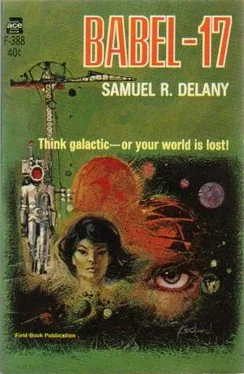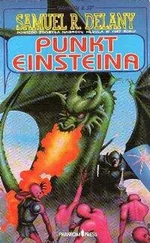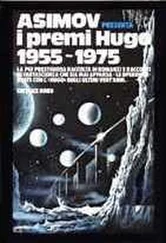Samuel Delany - Babel-17
Здесь есть возможность читать онлайн «Samuel Delany - Babel-17» весь текст электронной книги совершенно бесплатно (целиком полную версию без сокращений). В некоторых случаях можно слушать аудио, скачать через торрент в формате fb2 и присутствует краткое содержание. Год выпуска: 1966, Жанр: Фантастика и фэнтези, на английском языке. Описание произведения, (предисловие) а так же отзывы посетителей доступны на портале библиотеки ЛибКат.
- Название:Babel-17
- Автор:
- Жанр:
- Год:1966
- ISBN:нет данных
- Рейтинг книги:5 / 5. Голосов: 1
-
Избранное:Добавить в избранное
- Отзывы:
-
Ваша оценка:
- 100
- 1
- 2
- 3
- 4
- 5
Babel-17: краткое содержание, описание и аннотация
Предлагаем к чтению аннотацию, описание, краткое содержание или предисловие (зависит от того, что написал сам автор книги «Babel-17»). Если вы не нашли необходимую информацию о книге — напишите в комментариях, мы постараемся отыскать её.
and winner of four Nebulas and one Hugo, Samuel R. Delany is one of the most acclaimed writers of speculative fiction.
Babel-17
Babel-17
Empire Star
Babel-17 — читать онлайн бесплатно полную книгу (весь текст) целиком
Ниже представлен текст книги, разбитый по страницам. Система сохранения места последней прочитанной страницы, позволяет с удобством читать онлайн бесплатно книгу «Babel-17», без необходимости каждый раз заново искать на чём Вы остановились. Поставьте закладку, и сможете в любой момент перейти на страницу, на которой закончили чтение.
Интервал:
Закладка:
"You speak about us as though we were a salad." Rydra laughed. In the Baroness the 'appetite’ was not so menacing.
"I dare say if you stayed here long enough we would devour you, if you let us. What you bring we are very hungry for."
"What is it?"
They arrived at the bar, then turned with their drinks. The Baroness' face strained toward hardness. "Well, you . . . you come to us and immediately we start to leam things, things about you, and ultimately about ourselves."
"I don't understand.
“Take your Navigator. He likes his drinks big and all the hors d'oeuvres except the anchovies. That's more than I know about the likes and dislikes of anyone else in the room. You offer Scotch, they drink Scotch. You offer tequila, tequila they down by the gallon. And just a moment ago I discovered"—she shook her supine hand—"that it's all in the wrist. I never knew that before."
"We're used to talking to each other."
"Yes, but you tell the important things. What you like, what you don't like, how to do things. Do you really want to be introduced to all those stuffy men and women who kill people?"
"Not really."
"Didn't think so. And I don't want to bother myself. Oh, there are three or four who I think you would like. But I'll see that you meet them before you leave." And she barreled into the crowd.
Tides, Rydra thought. Oceans, Hyperstasis currents. Or the movement of people in a large room. She drifted along the least resistant ways that pulsed open, then closed as someone moved to meet someone, to get a drink, to leave a conversation.
Then there was a corner, a spiral stair. She climbed, pausing as she came around the second turn to watch the crowd beneath. There was a double door ajar at the top, a breeze. She stepped outside.
Violet had been replaced by artful, cloud-streaked purple. Soon the planetoid's chromadome would simulate night. Moist vegetation lipped the railing. At one end, the vines had completely covered the white stone.
"Captain?"
Ron, shadowed and brushed with leaves, sat in the corner of the balcony, hugging his knees. Skin is not silver, she thought, yet whenever I see him that way, curled up in himself, I picture a knot of white metal. He lifted his chin from his kneecaps and put his back against the verdant hedge so there were leaves in his com-silk hair.
"What're you doing?"
“Too many people."
She nodded, watching him press his shoulders downward, watching his triceps leap on the bone, then still. With each breath in the gnarled, young body the tiny movements sang to her. She listened to the singing for nearly half a minute while he watched her, sitting still, yet always the tiny entrancements. The rose on his shoulder whispered against the leaves. When she had listened to the muscular music a while, she asked:
"Trouble between you, Mollya, and Calli?"
"No. I mean . . . just . . ."
"Just what?" She smiled and leaned on the balcony edge.
He lowered his chin to his knees again. "I guess they're fine. But, I'm the youngest . . . and . . ." Suddenly the shoulders raised. "How the hell would you understand! Sure, you know about things like this, but you don't really know. You write what you see. Not what you do." It came out in little explosions of half whispered sound. She heard the words and watched the jaw muscle jerk and beat and pop a small beast inside his cheek. "Perverts," he said. "That's what you Customs all really think. The Baron and the Baroness, all those people in there staring at us, who can't understand why you could want more than two— And you can't understand either."
"Ron?"
He snapped his teeth on a leaf and yanked it from the stem.
"Five years ago, Ron, I was . . . tripled."
The face turned to her as if pulling against a spring, then yanked back. He spit the leaf. "You're Customs, Captain. You circle-Transport, but just the way you let them eat you up with their eyes, the way they turn and watch to see who you are when you walk by: you're a Queen, yeah, but a Queen in Customs. You're not Transport."
"Ron, I'm public. That's why they look. I write books. Customs people read them, yes, but they look because they want to know who the hell wrote them. Customs didn't write them. I talk to Customs and Customs looks at me and says: 'You're Transport.' " She shrugged. "I'm neither. But even so, I was tripled. I know about that."
"Customs don't triple," he said.
"Two guys and myself. If I ever do it again it'll be with a girl and a guy. For me that would be easier, I think. But I was tripled for three years. That's over twice as long as you've been.
"Yours didn't stick, then. Ours did. At least it was sticking together with Cathy."
"One was killed," Rydra said. "One is in suspended animation at Hippocrates General waiting for them to discover a cure for Caulder's disease. I don't think it will be in my lifetime, but if it is—" In the silence he turned to her. "What is it?" she asked.
"Who were they?"
"Customs or Transport?" She shrugged. "Like me, neither really. Fobo Lombs, he was captain of an interstellar transport; he was the one who made me go through and get my Captain's papers. Also he worked planetside doing hydroponics research, working on storage methods for hyperstatic hauls. Who was he? He was slim and blond and wonderfully affectionate and drank too much sometimes, and would come back from a trip and get drunk and in a fight and in jail, and we'd bail him out—really it only happened twice—but we teased him with it for a year. And he didn't like to sleep in the middle of the bed because he always wanted to let one arm hang over."
Ron laughed, and his hands, grasping high on his forearms, slid to his wrists.
“He was killed in a cave-in exploring the Ganymede Catacombs during the second summer that the three of us worked together on the Jovian Geological Survey."
"Like Cathy," Ron said, after a moment.
"Muels Aranlyde was—"
"Empire Star!" Ron said, his eyes widening, "and the 'Comet Jo' books! You were tripled with Muels Aranlyde?"
She nodded.' Those books were a lot of fun, weren' t-they?"
"Hell, I musfve read all of them," Ron said. His knees came apart. "What sort of a guy was he? Was he anything like Comet?"
"As a matter of fact, Comet Jo started out to be Fobo. Fobo would get involved in something or other, I'd get upset, and Muels would start another novel."
"You mean they're like true stories?"
She shook her head. "Most of the books are just all the fantastic things that could have happened, or that we worried might have happened. Muels himself? In the books he always disguises himself as a computer. He was dark, and withdrawn, and incredibly patient and incredibly kind. He showed me all about sentences and paragraphs—did you know the emotional unit in writing is the paragraph?—and how to separate what you can say from what you can imply, and when to do one or the other—"She stopped. "Then he'd give me a manuscript and say, ‘Now you tell me what's wrong with the words.' The only thing I could ever find was that there were too many of them. It was just after Fobo was killed that I really got down to my poetry. Muels used to tell me if I ever would, I'd be great because I knew so much about its elements to start. I had to get down to something then, because Fobo was . . . but you know about that, though. Muels caught Caulder's disease about four months later. Neither one of them saw my first book, though they'd seen most of the poems. Maybe someday Muels will read them. He might even write some more of Comet's adventures— and maybe even go to the Morgue and call back my thinking pattern and ask, ‘Now you tell me what's wrong with the words'; and I'll be able to tell him so much more, so much. But there won't be any consciousness left . . ." She felt herself drift toward the dangerous emotions, let them get as close as they would. Dangerous or not, it had been three years since her emotions had scared her too much to watch them.
Читать дальшеИнтервал:
Закладка:
Похожие книги на «Babel-17»
Представляем Вашему вниманию похожие книги на «Babel-17» списком для выбора. Мы отобрали схожую по названию и смыслу литературу в надежде предоставить читателям больше вариантов отыскать новые, интересные, ещё непрочитанные произведения.
Обсуждение, отзывы о книге «Babel-17» и просто собственные мнения читателей. Оставьте ваши комментарии, напишите, что Вы думаете о произведении, его смысле или главных героях. Укажите что конкретно понравилось, а что нет, и почему Вы так считаете.












